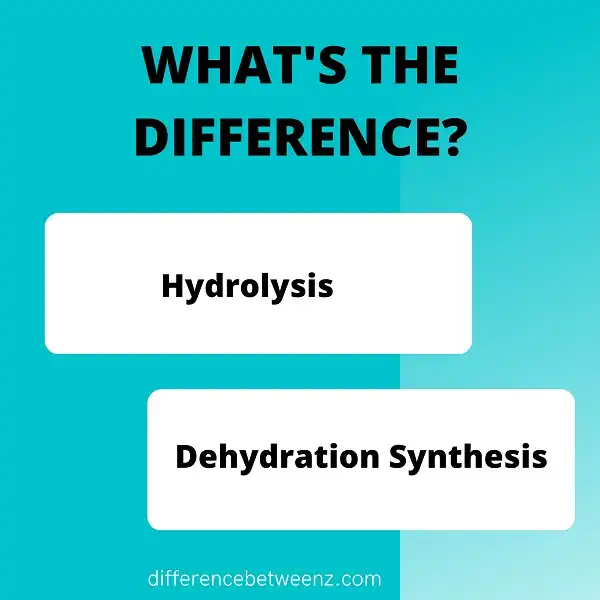Hydrolysis and dehydration synthesis are both chemical reaction processes, but they have different purposes. Hydrolysis breaks down molecules into smaller pieces, while dehydration synthesis combines smaller molecules to create bigger ones. In most cases, hydrolysis occurs naturally in the body to break down food into energy, while dehydration synthesis is used in biochemistry to create larger molecules like DNA and proteins. Understanding the difference between these two processes is important for students of biology and biochemistry.
What is Hydrolysis?
Hydrolysis is a process where water molecules are used to break down a chemical compound. This can happen with organic or inorganic compounds, but it is most commonly associated with breaking down large molecules into smaller ones. Hydrolysis is an important part of many biochemical processes, such as digestion and metabolism. It can also be used to break down environmental pollutants and clean up hazardous waste sites. In general, hydrolysis is a safe and effective way to break down unwanted chemicals.
What is Dehydration Synthesis?
Dehydration synthesis is a type of chemical reaction where two molecules are joined together by the removal of water. This process is also known as “condensation.” Dehydration synthesis is responsible for the formation of many different types of biomolecules, including carbohydrates, lipids, and nucleic acids. In order for dehydration synthesis to occur, the reactants must be able to form a covalent bond. This type of bond is formed when two atoms share electrons. Dehydration synthesis is used in many different fields, including biochemistry, medicine, and engineering.
Difference between Hydrolysis and Dehydration Synthesis
Hydrolysis and dehydration synthesis are two processes that are essential to many biochemical reactions. Hydrolysis is the process of breaking down a molecule into smaller units using water. Dehydration synthesis is the process of connecting two smaller molecules together to form a larger one. These two processes are often used in tandem to create larger molecules from smaller ones or to break down larger molecules into smaller units. Hydrolysis is typically used to break down large molecules, while dehydration synthesis is used to connect smaller molecules together. Both processes are essential for many biochemical reactions, and understanding the difference between them is crucial for students of biology and chemistry.
Conclusion
In order to understand the difference between hydrolysis and dehydration synthesis, it is important to first understand what each process entails. Hydrolysis is the process of breaking down a chemical compound into its component parts by adding water. Dehydration synthesis, on the other hand, is the process of joining two molecules together by removing a molecule of water. By understanding the difference between these two processes, you can better understand how enzymes catalyze biochemical reactions in living organisms.


